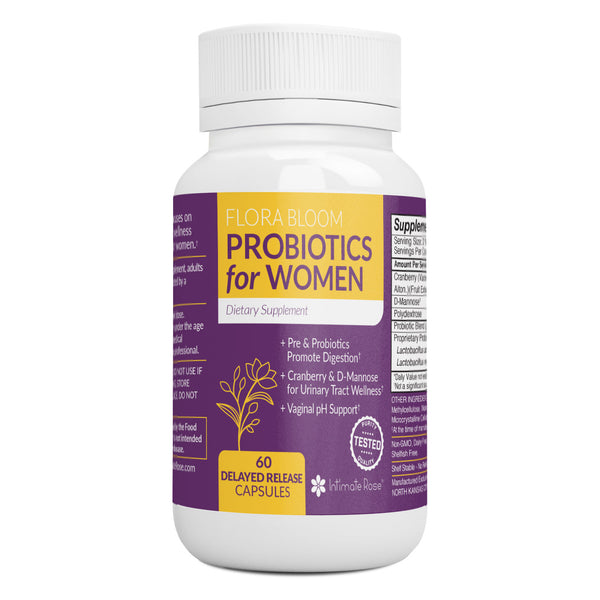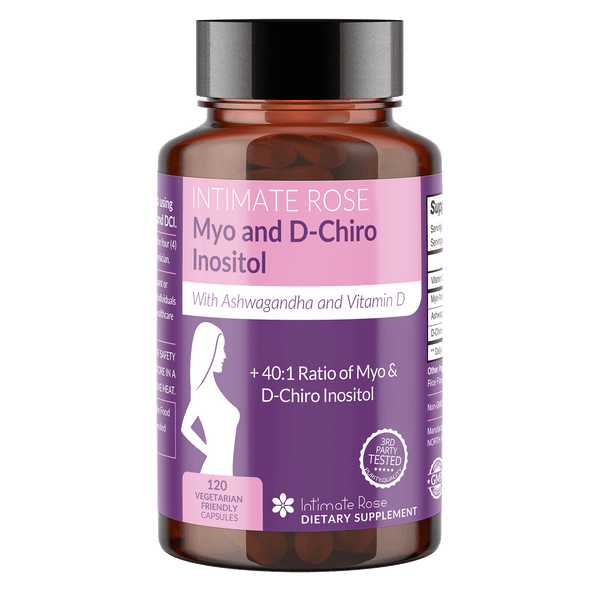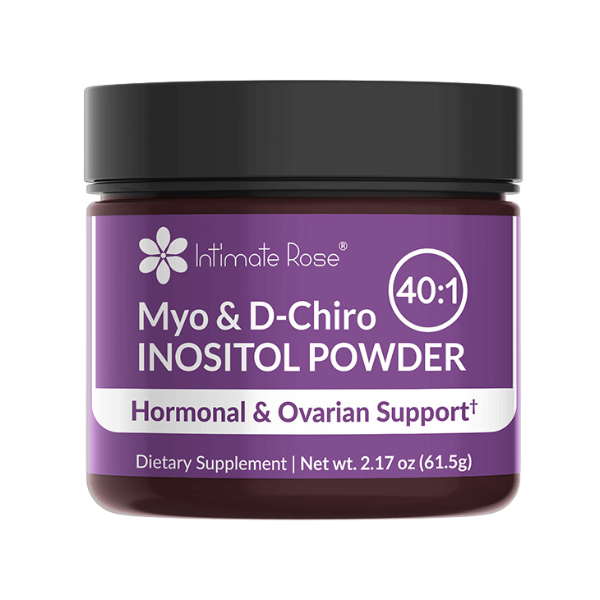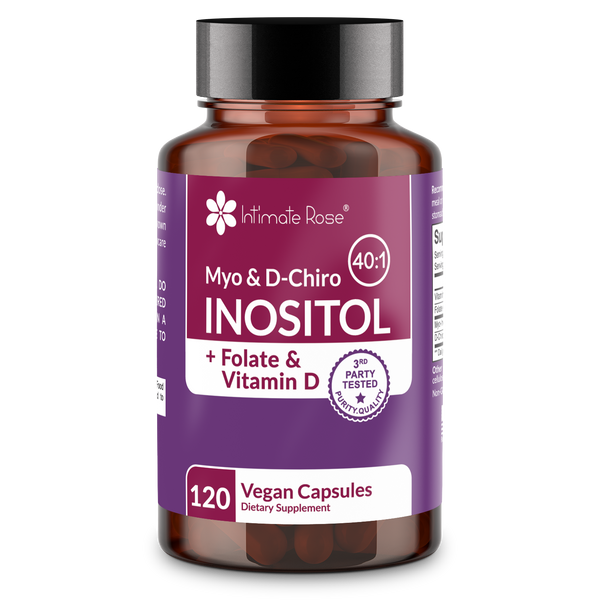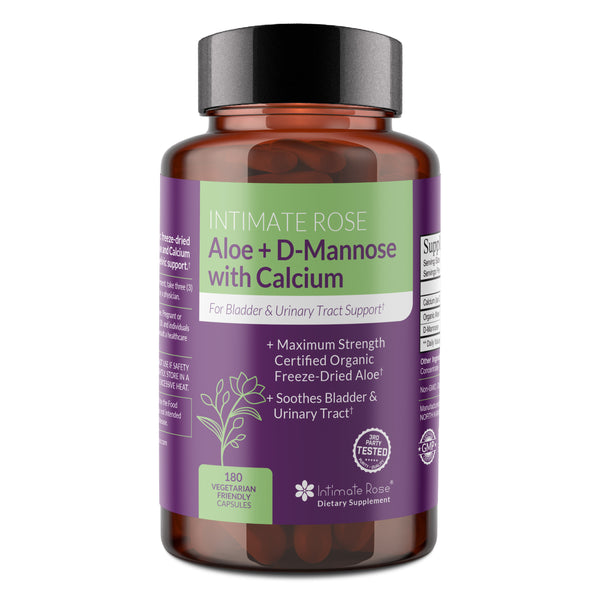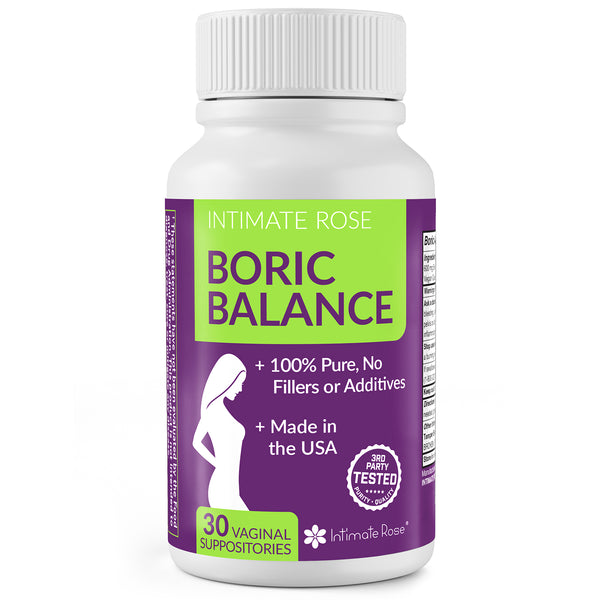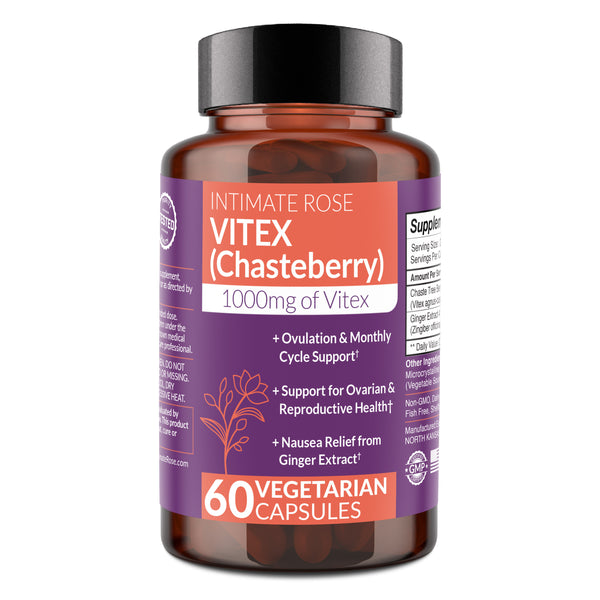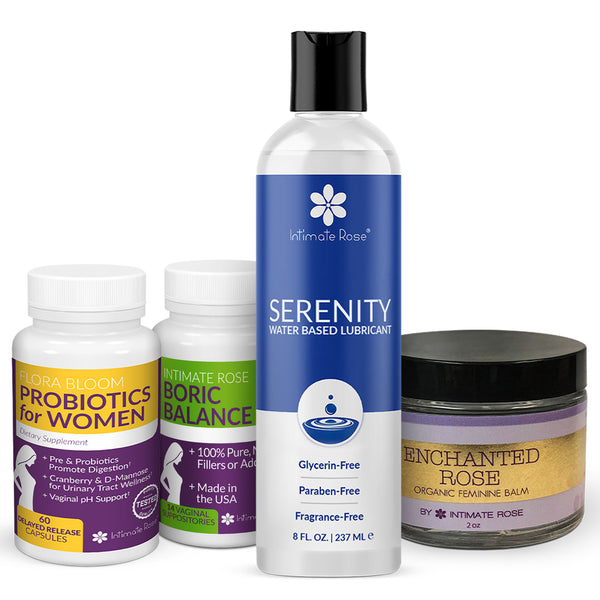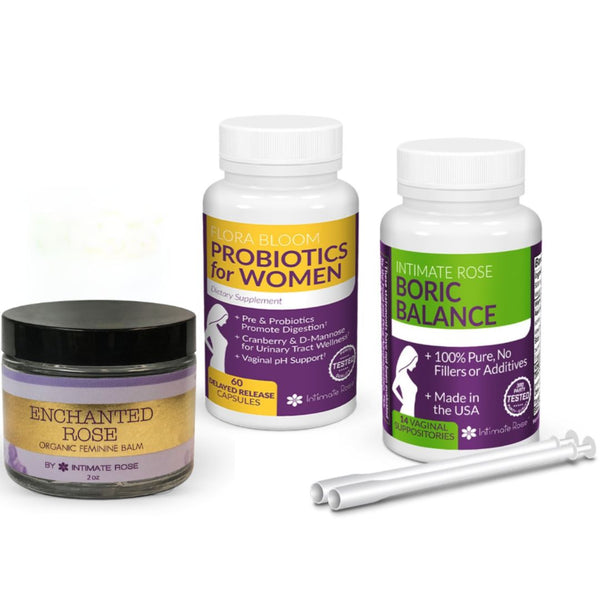Vaginal Hygiene | Boric Acid Suppositories | Probiotics | Breathable Underwear | Stress Levels
Bacterial Vaginosis is an infection caused by the overgrowth of certain bacteria in the vagina, which in turn upsets the natural pH balance. Symptoms can include burning during urination, itching, a gray vaginal discharge, and an unpleasant odor.
Although it is more prevalent in women aged 15-44, women of any age can be affected by Bacterial Vaginosis (BV). Certain activities like unprotected sex, smoking, and douching are thought to increase the risk of infection.
Unfortunately, even though a course of antibiotics will successfully treat a BV infection, over 50% of women experience a recurring infection within 12 months. There are, however, preventative steps that can be taken to significantly reduce the risk of re-infection.
Firstly, What Causes Bacterial Vaginosis?
While doctors don’t completely understand the link between sexual intercourse and BV, medical experts believe that unprotected sex with a new partner or multiple partners is a contributing factor. This is based on the fact that semen reacts with the microbiota of the vagina causing an alkaline environment for harmful bacteria to grow.
Oral sex is also thought to increase the risk of BV. According to recent studies, bacteria can easily be transferred to the vagina through saliva.
Douching, which is a rinsing of the vagina with a mixture of water and other fluids, is also thought to increase the risk of BV.
In addition, Bacterial Vaginosis can be common during pregnancy due to hormonal changes.

Things Off Down There?

Things Off Down There?
How to Prevent BV
Vaginal Hygiene
Maintaining good vaginal hygiene can be as simple as washing the area daily with warm water. Showers are recommended over baths to prevent any bacteria from lingering around the vagina. Regular use of unscented soaps and shower gels also helps to eliminate any vaginal irritation and maintain a healthy pH balance.
Remember to wipe from front to back after using the bathroom to avoid any fecal matter entering the urethra.
Change tampons and liners frequently.
Avoid douching, which can reduce the ‘good’ bacteria known as lactobacilli and disrupt the natural balance of bacteria growth in the vagina.
Use Condoms During Intercourse
Engaging in sexual intercourse with someone who has a penis increases the risk of Bacterial Vaginosis. This is mainly due to the reaction of the vaginal flora to semen, which can create the perfect environment for harmful bacteria to flourish.
Additionally, intercourse with multiple partners will lead to a higher amount of bacteria and an increased disruption to the natural pH of the vagina. Of course you can still get bv with the same partner.
According to a report in the journal Epidemiology, however, the risk of sexually active women developing BV is reduced by up to 63% when condoms are used consistently.
Boric Acid Suppositories
Now widely available as vaginal suppositories, Boric acid has been used for centuries as an effective natural remedy for vaginal health.
Used in conjunction with antibiotic treatment for BV, supplements like Boric Acid Suppositories from Intimate Rose, are designed to work quickly to help soothe irritation and rebalance the vaginal microflora.
Current research also looks positive in confirming that Boric Acid Suppositories, when taken as a regular supplement, can prevent recurring BV infections.
It is important to note that Boric Acid should never be taken orally or by pregnant women.
The Ultimate Vaginal Bundle

Invest in Probiotics
The ‘good’ bacteria known as lactobacilli not only help to improve digestion, they also play a vital role in maintaining a healthy vaginal pH balance.
Promising results are also emerging from current studies showing that ingesting lactobacilli orally, in the form of probiotics, can greatly reduce the risk of BV infection, as well as re-infection.
For example, adding a probiotic, like Flora Bloom Probiotics for Women from Intimate Rose, as a daily supplement can significantly help to balance vaginal pH, as well as improve digestion and lower the risk of recurring Bacterial Vaginosis.
Wear Breathable Underwear
Believe it or not, underwear can have a large impact on the risk of developing Bacterial Vaginosis, as well as how many times it returns.
Loose-fitting and breathable underwear made from cotton, especially organic cotton, is considered the best option for vaginal health.
Changing wet swimsuits or damp underwear from a buildup of moisture is highly recommended. Additionally, washing underwear with hypoallergenic soap instead of chemical detergents helps to reduce itching and irritation of the vulva.
Reduce Stress Levels
A 2018 study showed a clear connection between BV symptoms and high levels of the stress hormone, cortisol.
When the body is stressed it triggers a flight or fight response producing high amounts of cortisol and adrenaline from the adrenal glands. This process also pumps more blood to the heart, muscles, and lungs and slows down the digestive and immune systems.
It is widely believed that the result of a lowered immune system results in the vagina becoming more susceptible to bacteria and pH imbalances.
Three healthy and natural ways to manage stress levels are movement or exercise to boost the production of endorphins, conscious or deep meditative breathing to relax the mind, and yoga to release tightness or tension in the body.
Quit Smoking
Smoking cigarettes is thought to decrease the natural production of estrogen in the female body.
This decreased level of estrogen results in lower amounts of the ‘good’ lactobacilli bacteria in the vagina, which ultimately leads to pH imbalances, BV, and vaginal dryness.
Conclusion
Bacterial Vaginosis is a common infection in sexually active women aged 15-44. Symptoms include a gray vaginal discharge with a fishy odor, as well as vaginal itching and a burning sensation during urination.
At the first sign of BV symptoms, it is always best to consult with your doctor.
While antibiotics are generally used as treatment, some simple lifestyle changes like reducing stress levels & quitting smoking, as well as taking daily boric acid & probiotic supplements, can significantly reduce the risk of a recurring BV infection.
References
National Center for Biotechnology Information – Clinicians use of Intravaginal Boric Acid Maintenance Therapy for Recurrent Vulvovaginal Candidiasis and Bacterial Vaginosis -https://www.ncbi.nlm.nih.gov/pmc/articles/PMC6878170/
Hindawi – Association between Semen Exposure and Incident Bacterial Vaginosis -
https://www.hindawi.com/journals/idog/2011/842652/
Epidemiology – Condom Use and its Association With Bacterial Vaginosis and Associated Vaginal Microflora - https://journals.lww.com/epidem/Fulltext/2007/11000/Condom_Use_and_its_Association_With_Bacterial.9.aspx
Plos Biology – Glycan Cross-Feeding Supports Mutualism between Fusobacterium and the Vaginal Microbiota - https://journals.plos.org/plosbiology/article?id=10.1371/journal.pbio.3000788
National Center for Biotechnology Information – Randomized Trial of Lactin-V to Prevent Recurrence of Bacterial Vaginosis - https://pubmed.ncbi.nlm.nih.gov/32402161/
National Center for Biotechnology Information – The Association of Psychosocial Stress and Bacterial Vaginosis in a Longitudinal Cohort -https://www.ncbi.nlm.nih.gov/pmc/articles/PMC2367104/

Things Off Down There?






